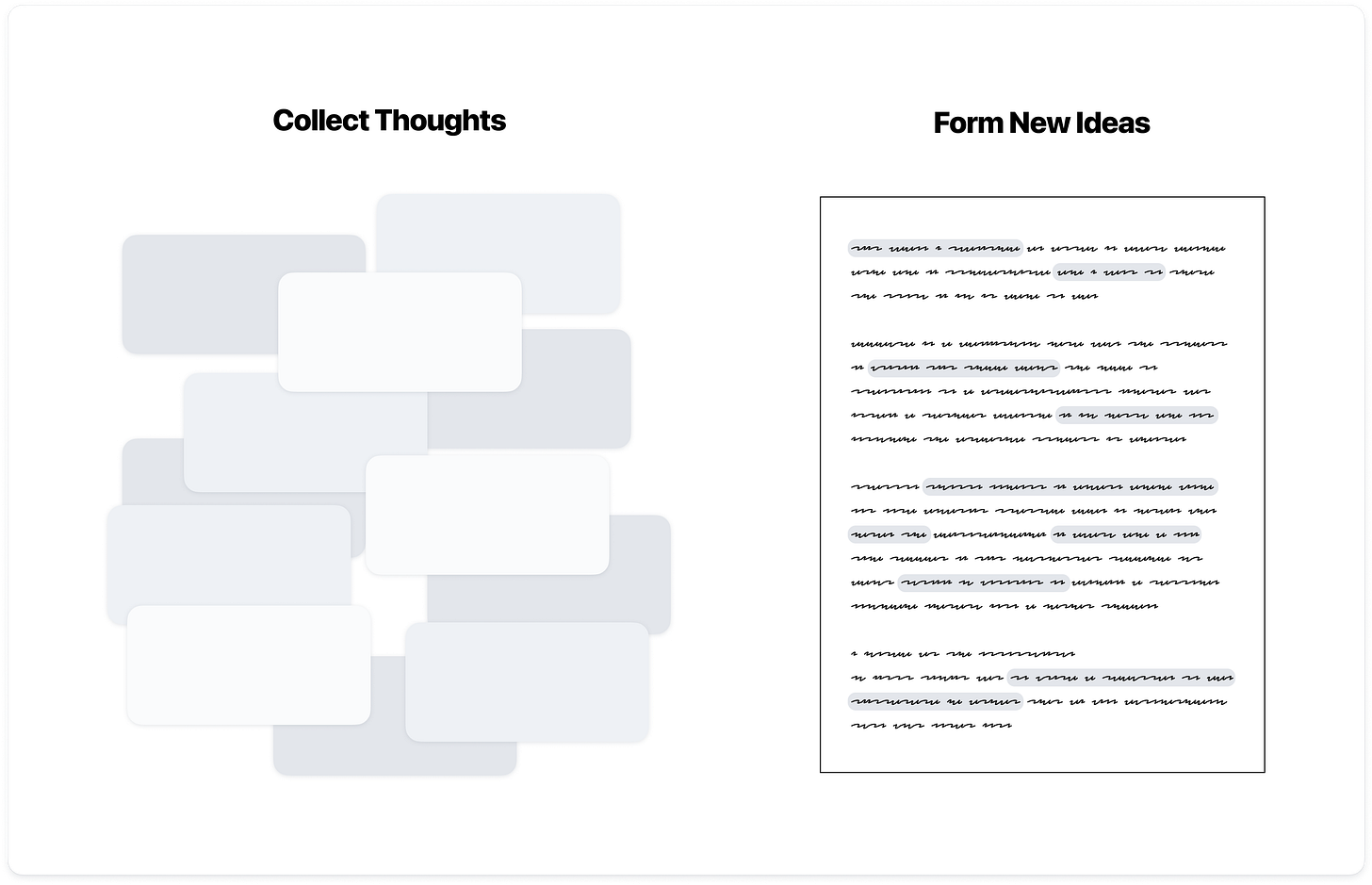This week, I published an essay in Every called "The End of Productivity" and I want to share the story of how it came to be.
Because in a delightfully meta way, the process of writing this piece about the need to transition to a creativity-first mindset was itself a perfect example of how messy and not formulaic the creative process is —false starts, pivots, moments of doubt, and…a whole lot more doubt.
It started back in March, when Kate, the Editor-in-Chief of Every and a long time reader of this newsletter reached out about turning my workshop on building a personal knowledge library into a larger piece.
I jumped at the opportunity.
My first thought was to write a rebuttal to Dan Shipper's "The End of Organizing" where he argues that AI will automatically turn your notes into a second brain. I had opinions. I had thoughts. I had... absolutely no idea where this was actually going.
My writing process began as it always does—with a Sublime collection. The thesis was so fuzzy that I simply called it "Every - essay bits inspo" and started collecting ideas and references that tangentially related to the themes I was exploring: AI, knowledge management, productivity, creativity.
When it felt like there was enough raw material, I laid out all my inspiration using Sublime Canvas and began the slow work of rearranging my cards, connecting dots, and uncovering insights.
The first draft was, to put it kindly, not good.
I was in my "worried AI might come for my job" phase (while simultaneously being excited about its potential—these aren't mutually exclusive), and it showed.
The piece set up straw man arguments about productivity tools that didn’t reflect the nuanced reality of how people actually use and think about them. In a series of calls and emails with my editor, I could tell she was being polite, but the underlying message was clear: there was nothing there yet.
I even fed my inspiration into Claude and ChatGPT, hoping for an algorithmic shortcut to clarity. While they helped, they couldn't do the real work—the necessary wrestling with ideas until they click.
But here's the thing about writing: the first draft is rarely where the magic happens. It's just the necessary mess you have to make so your journey toward clarity can begin.
For me, writing is like building LEGOs without instructions. Sometimes you have to completely demolish what you've built and start over with the same pieces to create something different and better.
Slowly, through iteration, intuition, and conversation, a thesis emerged: the future of knowledge work is about jailbreaking out of the productivity paradigm to pursue the weird, the emotionally resonant, the creative, the sublime. And getting there takes time.
The final piece took months of wrestling with ideas. Each draft was a step in a journey that couldn't be automated. And that's precisely the point—some things aren't meant to be optimized. The process is the work. The struggle itself is the point.
I'd love to hear from you:
How do you balance the pressure to be productive with the space needed for creativity?
What tools or practices help you make that transition from collecting inspiration to actually creating something with it?
And how do you think AI will change what it means to do meaningful creative work?
The Sublime is powered by sublime.app—the knowledge tool for creatives. Join today.








Oh, yeah, so you're just gonna tease out the Sublime Canvas and not let me play with it? Fine.
Interesting...
For me, I believe what makes any creative work interesting, is exactly that which cannot be produced by a machine or algorithm, but somehow is concocted out of your own idiosyncratic taste of what is great. The AI tech are just new tools to help you foster your creative vision out into the world. It can help, but there is also virtue in taking it slow and allowing the answers come to you. And unless AI could be strapped into my brain and just know exactly what I like before even I do, then the process of using AI can only be a brain-storming partner and assistant. But I do not use AI much. I like taking it slow and producing things by hand, as it were. And when you use AI to write, edit and arrange all your ideas for you, you also lose the earnest intentionality in what you're doing; it loses depth. Shakespeare, Rumi and Rilke could never have been written by a LLM - and we feel their words, even hundreds of years after.